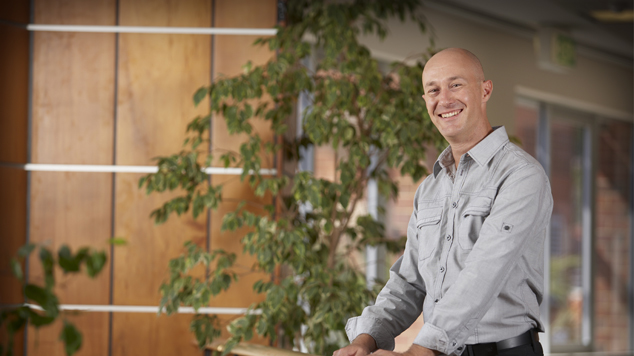
Researchers at WA’s own Curtin University have completed the First Australian National Trans Mental Health Study, which examined the mental health of transgender people.
The study was funded by beyondblue and is the largest of its kind in Australia. Researcher Matt Tilley, who is a Clinical Professional Fellow in Curtin’s School of Public Health, spoke to OUTinPerth about the significance of the study. “There are certainly other Australian studies that have occurred, but they haven’t occurred the way we’ve conducted our study. So it really was working with the trans community and various people who formed our advisory group that really assisted us to reach many trans people. The sorts of things that we heard was that they were really delighted to actually be encouraged to participate in such a well-conceived study.”
Tilley and his team had been long awaiting the opportunity to conduct this research, and applied for state funding in 2012 but were unsuccessful. “When we have an opportunity to investigate this area and apply for funding from beyondblue, the team of us jumped at this opportunity because we felt that it was certainly something that was extremely worthwhile to be trying to address and also extremely interesting to be looking at because it is such a misrepresented area”
946 people took part in the anonymous study, including 482 trans women, 232 trans men, 136 people who were assigned female at birth but now had a non-binary identity and 96 people who were assigned male at birth but now had a non-binary identity, all aged 18 or older.
The study found that trans people experienced disproportionately high levels of mental health problems, in particular anxiety and depression. The report concluded that trans people appear to be 4 times more likely to have ever been diagnosed with depression than the general population, and approximately 1.5 times more likely to have ever been diagnosed with an anxiety disorder. Tilley said the findings of the study were confirmative of what the researchers had come to expect from preliminary research.
“I think we again knew from anecdotal evidence, international evidence and from a previous smaller Australian study, that we were likely to get these sorts of numbers. I think one of the things that is a very important outcome in our study is to understand that there are a range of different experiences which contribute to trans people feeling further discriminated against and marginalised. Really I think one of the things you’ve got to be aware of is the way trans people have reported experiencing and accessing healthcare.”
Tilley said he hopes that by providing evidence of the acutely high levels of mental health issues in the trans population, the study could provide a platform to create change. The report, which can be found online, includes a number of possible options to address the issue. “Our report outlines a series of recommendations, and I think that probably if we were going to look at it overall we really need to have an integrated, holistic approach to meeting and addressing this health disparity for trans people.”
Tilley went on to explain what types of practical and conceptual options could be beneficial: “Simple things like involving trans people in the decision making processes around policy that affect their health. That’s vital. Because otherwise we end up with this top-down paternalistic model which is currently what’s occurring and isn’t helping people. We don’t have a multidisciplinary clinic in each state and territory, for example. So it means that there are some states and territories where trans people are probably getting better health services than others, but why is that? What’s wrong with our public health system that we can’t provide something like that? Other things like clear referral pathways and protocols so that trans people and their doctors know exactly what the steps are to achieve the medical transition they might be thinking.”
However, this is an issue that the wider community should also be involved in to achieve major change. “I think that again we need to be educating our kids in school around difference and diversity more so than we do. I think we need to make sure that our curriculum training for our healthcare professionals coming through includes a respectful approach to difference.”
When it comes to an ideological approach, Tilley says individuality is an important factor to consider. “What we need to do is we need to be seeing a person’s whole experience of life and in a trans person’s experience, that also means this sense of sex and gender diversity and how we can go about assisting them to have a better life, have a lower likelihood of experiencing ongoing clinical conditions like depression and anxiety, and how we can assist them to really find their own value within themselves and they can achieve their ultimate goals as human beings.”
The First Australian National Trans Mental Health Study can be found at www.transoz.org/bw0274.pdf
If you or someone you know is in need of mental health support, please call QLife on 1800 184 527 or Lifeline on 13 11 14 or visit www.lifeline.org.au/gethelp
Sophie Joske
Image: James Rogers




